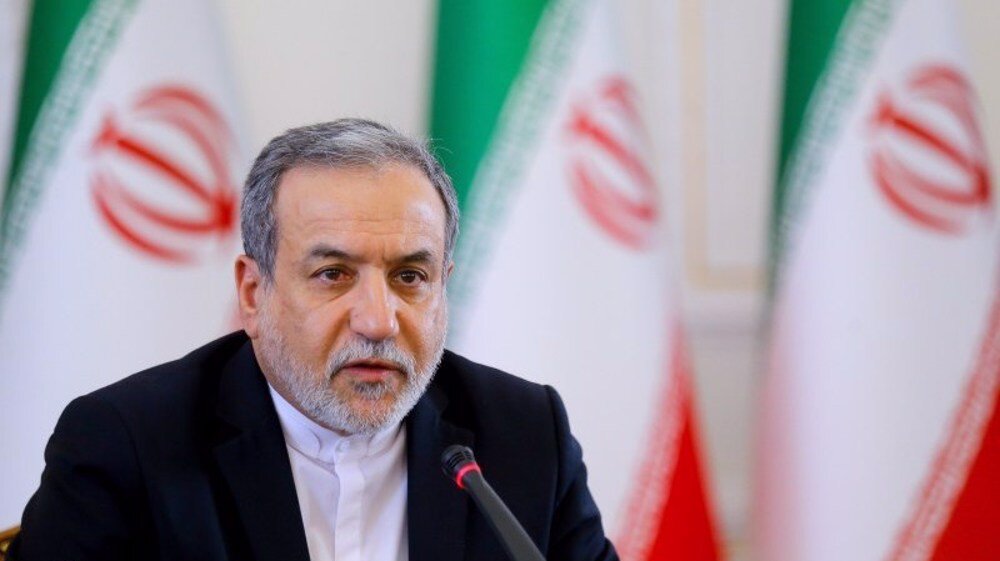West’s excessive demands blocked Iran’s diplomatic efforts: FM Araghchi

TEHRAN – Iran’s Foreign Minister Abbas Araghchi has criticized Western countries for rejecting Iran’s diplomatic efforts toward a fair and balanced solution, saying their “excessive and unreasonable demands” have obstructed progress in negotiations.
Speaking on the sidelines of a meeting with ambassadors, chargés d’affaires, and heads of international missions based in Tehran on Sunday, Araghchi said Iran has consistently pursued diplomacy in good faith. “Iran has always sought to achieve a fair and balanced negotiated settlement, but it was the Western countries that responded negatively due to their excessive demands,” he stated.
The top diplomat called for transparency regarding the latest decision by Western members of the UN Security Council, emphasizing that its legal and political consequences must be clearly explained. “It is important that the public be informed of what the Western countries have created within the Security Council and what risks and complications may result from this decision,” he said.
Araghchi warned that the European trio (E3)—Britain, France, and Germany—have significantly weakened their diplomatic credibility following their latest moves. “Given the recent developments, the role of the three European countries in future diplomacy will become increasingly marginal,” he said. “The snapback mechanism, military threats, and pressure tactics simply do not work.”
Referring to repeated military threats against Iran, Araghchi said such pressure has always failed to yield results. “They have repeatedly threatened Iran with military attacks, but those threats have achieved nothing. The snapback mechanism and military options are ineffective,” he added.
The Foreign Minister also noted that Iran has signed a new technical cooperation agreement with the International Atomic Energy Agency (IAEA) to replace the previous Cairo Agreement, which he said no longer meets current needs.
“This new arrangement was necessary in light of recent field developments and security threats, including attacks on nuclear facilities,” he explained. “The earlier framework established in Cairo is no longer sufficient, especially after the activation of the snapback mechanism, and new decisions will be made accordingly.”
Araghchi stressed that Iran has “exhausted every diplomatic path” to demonstrate the peaceful nature of its nuclear program. “The Islamic Republic of Iran has engaged in dialogue, maintained cooperation, and presented constructive and balanced proposals,” he said.
He concluded by saying that Western governments now have no justification for accusing Iran of avoiding talks. “Iran’s positions are entirely legitimate and reasonable,” Araghchi said, reaffirming that Tehran remains ready to pursue any initiative that builds mutual confidence and strengthens diplomacy.
A few days ago, the Iranian government spokesperson revealed that U.S. President Donald Trump’s special envoy, Steve Witkoff, had been invited to a meeting proposed by Tehran, with the participation of the foreign ministers of the three European countries and the representative of the International Atomic Energy Agency (IAEA).
“Witkoff did not show up to the meeting,” spokesperson Fatemeh Mohajerani confirmed. She said European governments had told Tehran it must agree to direct engagement with a U.S. representative if it wanted extended relief from pre-JCPOA UN sanctions.
Mohajerani added that even Iran’s offer to delay the activation of the snapback mechanism for 45 days was rejected due to pressure from the Zionist lobby.
Her remarks came after the United Nations confirmed the reactivation of UN sanctions on Iran, following the Security Council’s failure to adopt a resolution extending the implementation of Resolution 2231 for six more months.
The decision came after France, Britain, and Germany formally invoked the snapback mechanism last month—an option originally designed to restore previous sanctions in the event of verified non-compliance.
Under the 2015 JCPOA, Iran accepted restrictions on its nuclear activities in exchange for the lifting of international sanctions. The deal was endorsed by UN Security Council Resolution 2231, which set October 2025 as the deadline for the final expiration of all nuclear-related measures.
Iran has consistently argued that the U.S., even under the Obama administration, failed to uphold its side of the agreement by obstructing Tehran’s access to economic benefits. The situation deteriorated further in 2018 when the Trump administration unilaterally withdrew from the JCPOA and reimposed sweeping sanctions.
In response, and after waiting over a year for Europe to fulfill its commitments, Iran began gradually reducing its obligations under the deal while maintaining that its actions were reversible and within the legal framework of the JCPOA.
The October 2025 deadline was meant to mark the end of the decade-long nuclear dispute and the normalization of Iran’s nuclear status. However, the E3’s decision to trigger the snapback mechanism effectively blocks that process.
Iran maintains that its reduced commitments were legitimate countermeasures to Western non-compliance, and therefore, the E3 has no legal grounds to activate the mechanism. Russia, China, and several other countries have endorsed Iran’s position, saying they do not recognize the legitimacy of the renewed anti-Iran sanctions.
Araghchi concluded that despite these pressures, “Iran will continue to pursue diplomacy, but not under threats or unlawful measures. Those who violate the deal cannot claim to defend it.”
Leave a Comment